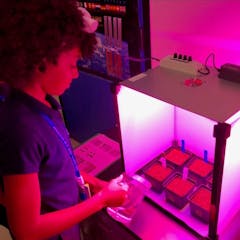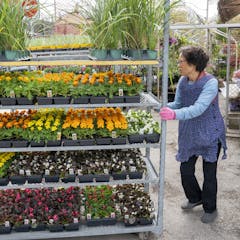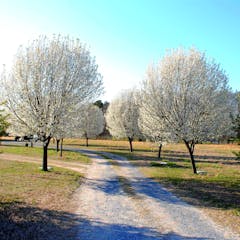
Articles on Gardening
Displaying 1 - 20 of 102 articles

And why earthworms are careful to select a mate of the same size as themselves.

The US Department of Agriculture has updated its plant hardiness zone map, which shows where various plants will grow across the country. Gardeners should take note.

New research shows how university garden initiatives can help drive transformative change and nurture a new generation of environmental and socially conscious change-makers.

Four types of nematodes occur in soil.

A study of dozens of city gardens and urban farms across the US and Europe found several ways to boost their benefits, not just for their neighborhoods, but for the planet.

Conditions this year have been perfect for a cabbage white population boom, but you can do a few things to stop their caterpillars from shredding your plants.

Astronauts living and working on the Moon will need something to eat. The Growing Beyond Earth program supports international space crop research.

As the cost-of-living crisis bites into our household budgets, growing or foraging food can save you money.

Paid domestic work has a low status in South Africa. The labour of domestic workers is often undervalued and unrecognised.

Many people are gardening on land that is not theirs – here are some things to consider to avoid getting into trouble.

Could community gardening emerge as an effective method for addressing climate anxiety?

Your less manicured garden has the potential to combat tackle climate change and help wildlife survive.

Here are a few ways you can benefit from nature in and around your home without stepping foot in a garden.

Only by understanding our past and current relationship with soil can we reflect and change our partnership with soil from extraction and exploitation to respect, relationality and reciprocity.

People’s sense of belonging is fostered in everyday social practices and in the spaces they claim for themselves. Our elders need be acknowledged, respected and accepted.

Gardening is often seen as a relaxing, harmless pasttime – but that isn’t always the case.

As we approach the start of gardening season, it’s a good time to ask some questions about what to plant and who gets to plant.

They tend backyards brimming with cactus varieties, consuming the produce. Prudence Gibson meets a hidden group of gardeners and ponders the allure – and – danger of psychoactive plants.

Instead of focusing their limited time, energy and finances in effective interventions in their gardens, many individual gardeners are falling prey to greenwashing.

They’re beautiful in bloom, but Callery pear trees crowd out native plants and turn productive open land into woody thickets.
